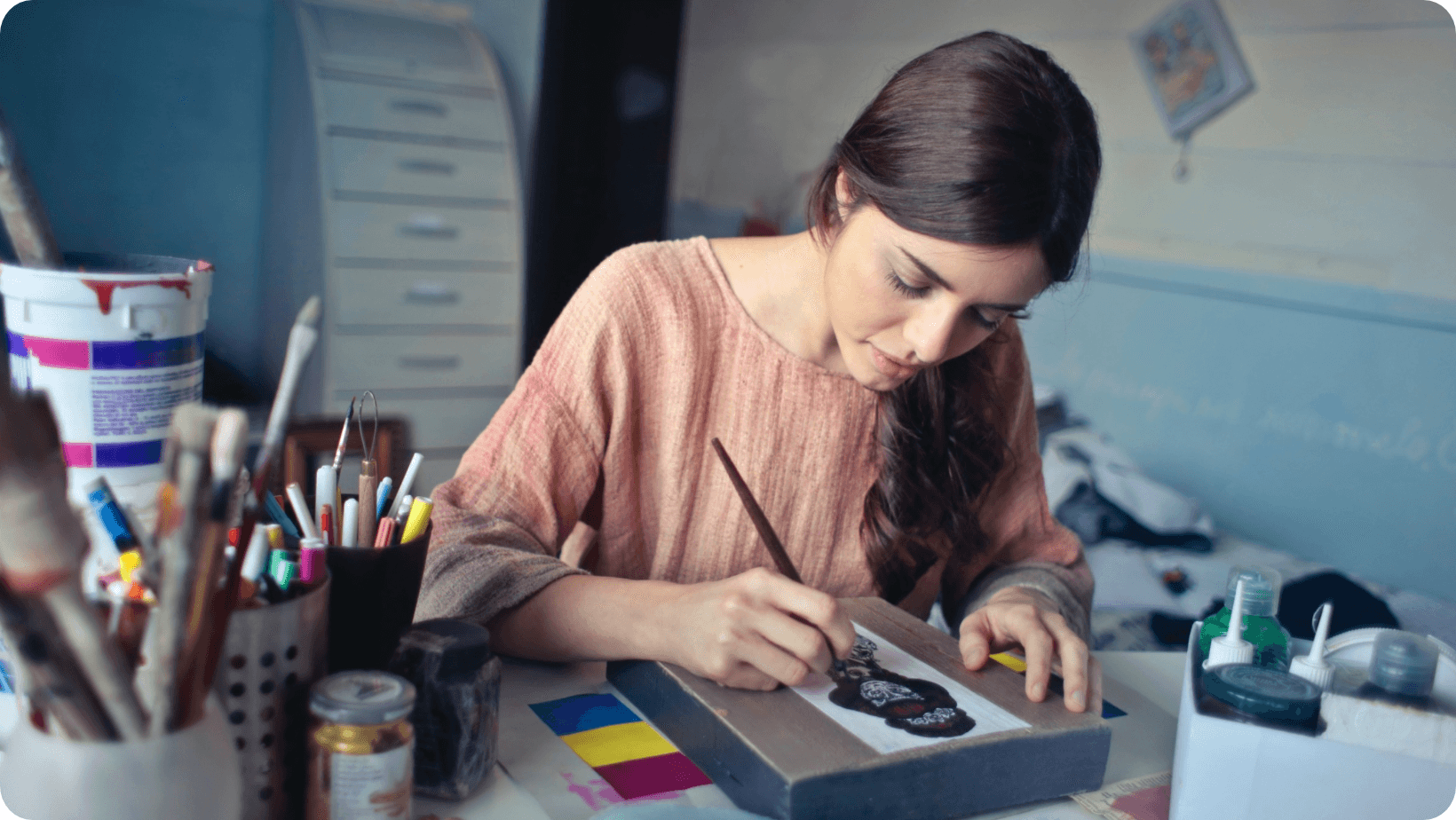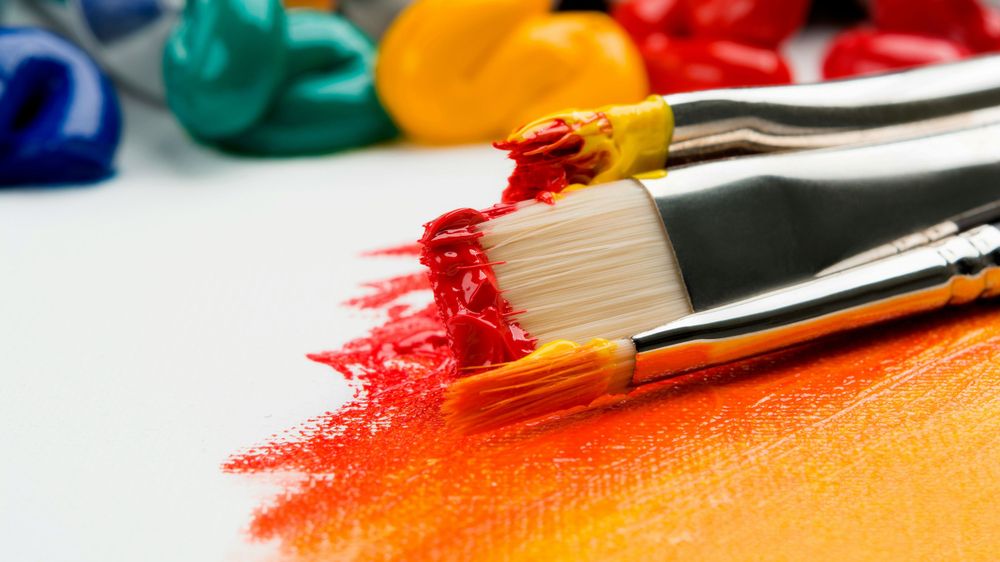Dear Creatives, what’s in your art supplies? Ensure it stays vegan
Art supplies have traditionally incorporated animal products for centuries. Combining oil paints with egg yolk has been found in the works of old master artists Sandro Botticelli and Leonardo da Vinci during the Renaissance period when only a few art materials were used.
Although more artists are searching for vegan-friendly materials, many go-to paints, inks, papers, and coloured pencils can still contain animal by-products, despite being labelled cruelty-free.
Winsor and Newton, Daler-Rowney, and Daniel Smith are cruelty-free brands within the artist community, most of their ranges being labelled as vegan for easy shopping - just check which shades contain animal derivatives as the common non-vegan shades are black, dark blues, greys, and some warm-toned shades such as Raw Sienna and Raw Umber.
Most of the top-quality Winsor and Newton Artists’ Oil range offers an array of vegan-friendly paints except for the shades Blue Black and Ivory Black. But watch out as none of their Artists’ quality Watercolour range is vegan as they contain ox gall, so opt for their other watercolour range - Cotman - where most of this range is listed as being vegan-friendly, apart from the shades Ivory Black, Raw Umber and Viridiun.
If you are an avid watercolourist, Daniel Smith, and QoR watercolours are vegan-friendly, as they use synthetic binders.
What animal byproducts are used within art mediums?
Intense pigments can contain charred bones (PBk9) found in blacks, greys, and dark blues. Carmine, a red pigment, is derived from crushed cochineal beetles, which gives a vibrant colour and is used within dyes.
Beeswax and animal fats can be used in crayons and pencils. Gelatine and ox gall are binding agents within paper, glue, ink, and watercolour paints. Shellac can be used within varnishes or Indian ink. Also, many animal hair fibres, such as sable, hog, mink, and rabbit, are used for paint brushes.

Andrea Piacquadio/Pexels
Which artist brands are fully vegan?
The UK vegan-run brand Culture Hustle, created by the artist Stuart Semple, produce vibrant powders to mix with water, acrylic medium or linseed oil and different types of acrylic paints. Their products are very opaque, lightfast, and archival; some are even scented. They also offer innovative newly released inks.
Stuart famously created the ‘World’s pinkest pink’ and, after seven years in the making, curated the ‘blackest black’ paint known in the universe.
Stuart Semple is obsessed with sharing unique art materials that elevate your work that has never been seen before by the human eye.
Copic
A fully-vegan Japanese brand, Copic produce every shade imaginable in fast-drying, transparent alcohol ink marker pens, that are well known for their excellent blending and building capabilities, vibrant colours and smooth finish - never compromising the fibres of the paper. The pens are refillable and come with replaceable nibs.
Polina Bright
A talented professional Australian watercolourist, Polina Bright, offers a cruelty-free alternative to natural hair watercolour brushes; they are well-balanced, comfortable to hold, and produce consistent results.
These brushes are highly absorbent and can hold water just as well, if not better, than hair watercolour brushes. They allow for bold washes and enhanced control for precise fine details and come in various sizes to suit your needs.
Vegan canvas and art papers
To reduce the absorbency and porosity of hot or cold pressed stretched and prepared papers, canvases and art papers are traditionally treated with a gelatine size, extracted from the skin, bones, and connective tissues of animals; but now several papers are treated with synthetic size instead.
In 1965, the German brand Hahnemühle became the first paper manufacturer to produce paper exclusively for vegan artists. They use rags (cotton fibres) or pulp for all their paper mediums.
Sustainable canvas and frames
Reusing and recycling unwanted plywood is the perfect material to cut down to size and use as a canvas board for oil and acrylic painters using the smooth side to paint upon.
To prep a plywood board, firstly, use a paint wash and allow it to dry. Then, build upon the plywood with your paints. Oil and acrylic paints adhere well to wood, providing bright, saturated colours with a durable finish.
Alternatively, thick white linens and cotton material can be stretched and nailed over a simple wooden frame creating the perfect canvas to paint on.
Make your own frames with unwanted wood or find frames in charity or second-hand shops to upcycle at home.
What to check for
Investing in high-quality art supplies helps you create your best long-lasting pieces full of life and saves you money in the long term.
More companies are making a change, developing eco-friendly and cruelty-free strategies to ensure their products are saleable to a broader market. The Vegan Trademark (sunflower logo) certifies products are vegan, and the Leaping Bunny logo certifies a product is cruelty-free.
If you express yourself creatively through art mediums and crafts but are conscious about what may be hidden within art materials, you can contact a company directly to certify a paint, pastel pallet or paper is vegan-friendly.
If you’re a creative, discover how your career choices can contribute to vegan activism, and follow these vegan activist Insta artists!
